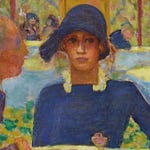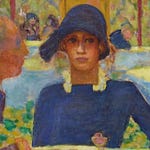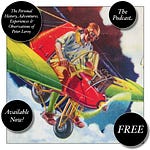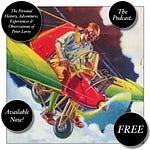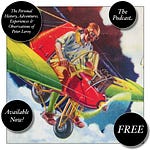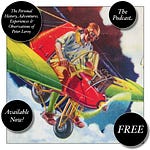ARIANE stood at the kitchen counter with Duncan Rollo of the Zoning Board, Bud Costa, a Babbington builder, and Derek Rourke, a young architect.
“So what I want to do,” she said, indicating with a wave of her arm the interior walls, the walls that hid the bedroom and bathroom from the audience, “is open the whole place up.”
“You mean, like put in a little window here, or something?” asked Bud. He was trying not to look over his shoulder at the rows of seats. They had been empty when he had first come into the warehouse, earlier in the morning. Ariane’s house had been quiet then, and he had wondered whether he should go around to the back door and knock, announce his presence, but then he had asked himself why he should bother, or why he should bother her. He could see right into her house, couldn’t he? The lights were off, and the curtain was drawn across her bedroom, so she must be asleep. The café wasn’t open. No one was around. He walked down to the diner near the town docks and got a container of coffee, returned to the warehouse and took a seat in the back. He drank his coffee and waited for Ariane to wake up and the others to arrive. By the time they had arrived Ariane was dressed and making coffee in her kitchen. The auditorium was no longer empty, and people had been drifting in ever since. Now that he was up here, in her house with her, the thought that whoever was out there might be hanging on his every word unnerved him, and he seemed to be talking like a tongue-tied kid.
“No, no,” said Ariane. “Open it right up. The whole place. I want everything visible.” She winked at Bud.
The wink convinced Bud that she hadn’t been asleep at all when he arrived, that she knew he’d gotten there early, and that she had probably decided why he had come so early, too. She would have guessed that he’d heard the rumors, and that he was hoping to catch a peek at her naked. He hadn’t been so lucky. She had come out of the bedroom in a nightgown, and when she took her shower she had been completely hidden from sight. He wondered if his disappointment showed. “Well,” he said, “you don’t mean—”
“What?” prompted Ariane.
Bud couldn’t help himself. He looked over his shoulder at the audience. There must have been a couple of dozen people out there. He turned toward Ariane again and inclined his head toward her and whispered, “You don’t mean the bathroom, of course.”
“I do!” said Ariane. “I do. I mean everything.”
“Geez,” said Bud. He thought of leaving, but he didn’t want to look like a guy who couldn’t handle whatever came his way. “You got any beer?” he asked.
“In the fridge,” said Ariane.
“If I may make a suggestion,” said Derek, opening his sketchbook on the counter and beginning to draw, “I think that what you should do is take all these spaces and rearrange them. You see, ordinarily, a house is a set of spaces with defined functions: a kitchen where you cook, a dining room where you eat, a bedroom where you sleep—”
“—and make love,” said Ariane, just to break the handsome young architect’s stride.
“—and make love,” said Derek, his stride unbroken. “But in your case, each of your rooms is asked to do more.”
“Yeah,” said Bud, despite himself, “a lot of your rooms have multiple functions.” As if without volition, he turned toward the audience and began saying, “I see this more and more in the houses I build today. People want a kitchen that fulfills some of the functions of the traditional family room. But, hey, how traditional is the family room?”
Duncan Rollo, who was at home in Ariane’s home by now, and felt at home with her audience, too, clapped his hands over his ears, shook his head, waved both hands in a comical gesture of exasperation over losing Bud Costa to the performing life, blew Ariane a kiss, and slipped out the door. In a moment he was back. “Just one thing,” he said. “Since this is a stage set in an auditorium and not a dwelling” —he threw a conspiratorial look at the audience and got some applause—“I want you to put in some fire extinguishers. At intervals around the auditorium.”
“Sure,” said Ariane. “Good idea.” She waved him off.
“I’m serious about this,” said Duncan. “I wouldn’t want to have to close you down.”
“Okay,” said Ariane. “Okay. Goodbye.” Duncan blew her another kiss and went on his way.
[to be continued]
Have you missed an episode or two or several?
You can begin reading at the beginning or you can catch up by visiting the archive or consulting the index to the Topical Guide. The Substack serialization of Little Follies begins here; Herb ’n’ Lorna begins here; Reservations Recommended begins here; Where Do You Stop? begins here; What a Piece of Work I Am begins here.
You can listen to the episodes on the Personal History podcast. Begin at the beginning or scroll through the episodes to find what you’ve missed. The Substack podcast reading of Little Follies begins here; Herb ’n’ Lorna begins here; Reservations Recommended begins here; Where Do You Stop? begins here; What a Piece of Work I Am begins here.
You can listen to “My Mother Takes a Tumble” and “Do Clams Bite?” complete and uninterrupted as audiobooks through YouTube.
You can ensure that you never miss a future issue by getting a free subscription. (You can help support the work by choosing a paid subscription instead.)
At Apple Books you can download free eBooks of Little Follies, Herb ’n’ Lorna, Reservations Recommended, and Where Do You Stop?
You’ll find overviews of the entire work in An Introduction to The Personal History, Adventures, Experiences & Observations of Peter Leroy (a pdf document), The Origin Story (here on substack), Between the Lines (a video, here on Substack), and at Encyclopedia.com.





